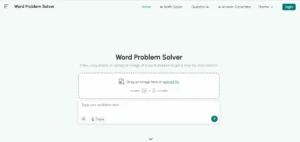Mobile cyber threats are becoming more common, and smartphones hold a lot of personal information that hackers want. These days, protecting your phone isn’t just advisable—it’s essential. Many of us use our phones for banking, emailing, or accessing work files without realising the cybersecurity risks involvedwe face from cybercriminals.
A virtual private network (VPN) is a straightforward way to protect yourself. It secures your phone by encrypting all the data you send and receive so no one else can read it if they try to intercept it. Whether browsing the internet, paying bills, or video chatting, a VPN keeps your personal information private and safe from online threats.
What Is a VPN and How Does It Work?
A VPN is essential for online privacy and security. It encrypts your internet traffic, creating a secure connection that protects your data from being intercepted by hackers, internet service providers (ISPs), or government agencies. Advanced encryption, like AES-256, sends your information through a secure “tunnel” between your device and the VPN server, keeping your online activity private and safe.
Another key feature of a VPN is IP address masking. Your IP address is like a digital identifier that shows your location and online activity. A phone VPN allows you to hide your IP address by assigning you a new one based on the VPN server you select. This function improves anonymity and prevents websites, apps, or malicious parties from tracking your identity or location.
Why Use a VPN on Your Smartphone?
Here are some key benefits of using a VPN on your mobile device:
- Enhanced Privacy: VPNs prevent apps, advertisers, and trackers from monitoring online activity on your mobile device. By encrypting your data and hiding your IP address, a phone VPN stops data brokers from building profiles based on your internet usage.
- Better Security: When connected to public Wi-Fi, your data is vulnerable to hackers. VPNs use secure protocols like OpenVPN or WireGuard to protect your information, keeping you safe from hackers and man-in-the-middle attacks on unsecured networks.
- Access to Blocked Content: VPNs let you connect to servers in other countries, helping you bypass geo-restrictions on websites and streaming platforms. You can watch international shows or access services unavailable in your location, unlocking a global internet experience.
- Protection Against DDoS Attacks: VPNs add a layer of protection against Distributed Denial of Service (DDoS) attacks for gamers and remote workers. By hiding your real IP address, a VPN keeps your connection safe from targeted disruptions.
In a nutshell, a VPN makes your smartphone connection more private, secure, and unrestricted. It protects sensitive data, avoids trackers, and allows you to access content from around the world, ensuring a safer and more open online experience.

Copyright: UnSplash I License: CC0 Public Domain
How a VPN Can Protect Your Smartphone
The growing number of cyber threats we face means that VPNs have become essential for protection. Some of the threats they can protect against include:
Data Breaches and Hacking Risks
Our growing reliance on mobile devices means cyberattacks have become more advanced and frequent cyberattacks. Hackers use tricks like phishing emails and fake apps disguised as real ones to attack smartphones. In early 2024, adware made up about 46% of detected mobile malware globally, showing how common these risks are for mobile users.
By mid-2024, there was a noticeable rise in phishing attacks and harmful web content sent to users. This tendency, highlightsing the growing dangers in the mobile threat landscape.
Public Wi-Fi Vulnerabilities
Public Wi-Fi is convenient, but it comes with serious security risks due to weak encryption, making it easy for hackers to target users. One common risk is the “man-in-the-middle” (MITM) attack, where attackers intercept the data you share on these networks. The Australian Federal Police have even charged people for setting up fake Wi-Fi networks on aeiroplanes, highlighting how widespread and dangerous this issue can be.
Tracking and Surveillance Concerns
Smartphone users face growing threats to their privacy from tracking and surveillance. Many apps and advertisers collect data like location, browsing habits, and app usage through tools like mobile ad IDs (MAIDs) and software development kits (SDKs), often without explicit consent.
Government surveillance is also increasing, and tools like cell site simulators and spyware are being used. Reports have revealed widespread use of spyware, such as Pegasus, to target private citizens and journalists. VPNs can encrypt your data, offering a layer of defencse against invasive tracking and surveillance.
Stay Safe Online with a VPN
Today, privacy and security matter more than ever. VPNs protect your online activity by encrypting your data and keeping it safe from hackers and prying eyes. They also let you access the global internet without restrictions, giving you the freedom to browse securely and privately.
With a VPN, you can enjoy safer browsing, protect yourself from cyber threats, and explore the web without limits. Discover how a VPN can give you both security and freedom online.





